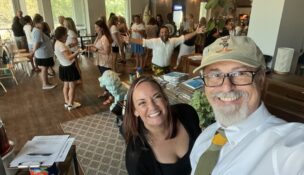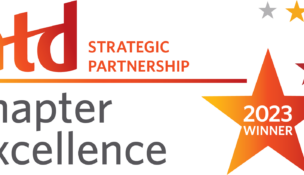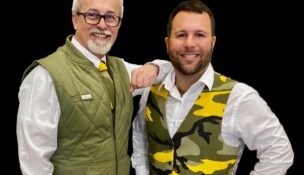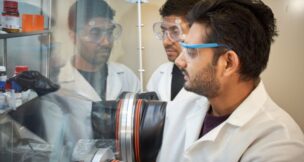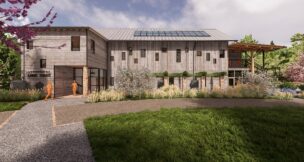Prison reentry program aims to be 1st in nation
Staff //January 4, 2022//
 When it comes to changing the course of one’s life, it’s not about expecting a full turnaround overnight; rather, just a pivot in direction.
When it comes to changing the course of one’s life, it’s not about expecting a full turnaround overnight; rather, just a pivot in direction.
That’s according to Amy Barch, founder and director of the former Turning Leaf, now called Turn90 in a rebranding campaign.
Despite its name change, the nonprofit organization headquartered in North Charleston still serves the same purpose – to work with men leaving prison to prevent rearrest and repeat offenses and to help transition them back into the workforce.
“I’ve had other people tell me that they really love it (the new name),” Barch said. “And they instinctually understood why we changed our name to that, like this idea of, “We’re not doing it at all. We’re not trying to do the whole 180. We’re not trying to change what happens; we’re just trying to help people make a turn.”
Part of the rebranding is also to set the organization apart from others. Turn90’s goal is to become the first nationally recognized evidence-based prison reentry program, Barch said, and a trademarked name is the first step.
According to the Department of Justice, what makes an evidence-based program in the field of reentry includes shown effectiveness in reducing recidivism, or the tendency of a convicted criminal to reoffend, in multiple locations.
“So you’re going to look at the program, and you’re going to use really high rigor at looking at data and control groups and determine the program doesn’t just do it one time, but that it can do it in multiple locations and multiple occasions run by different people,” Barch said. “No one’s ever been able to reach that standard, so based on our federal standard of evidence-based programming, we don’t have one yet for adult reentry programs.”
To pursue the goal of becoming the nation’s first successful reentry program according to federal definition, expansion is another component.
Though Turn90 was an idea and a development that Barch had invested more than 10 years into, she always knew she wasn’t content only running the program out of Charleston. In October 2019, strategic planning sessions with the board began to implement a replication model.
This culminated in the opening of a Columbia location that took place at the end of October. By 2023, Barch said an Upstate location can be expected as well.
At all locations, the model will look the same – four months of cognitive behavioral therapy, case management and on-site transitional employment to create an opportunity for success in life after prison.
This strategy has already taken hold at the Charleston location, where the program’s 22% of recidivism in the first three years out of prison shows a drastic reduction in comparison to the nation’s rate of a little more than 60%.
Participants engage in 150 hours of curriculum, including daily classes and facilitation and guidance from program graduates who went on to becoming part of Turn90 staff.
In these sessions, students dive into exercises, such as sketching out timelines of events that led to their past actions, or role-play activities that get the entire class involved in skits comparing positive and negative consequences of various decisions.
After graduation, each participant gets to apply learned job skills from the program as they are placed in a job with competitive wages, benefits and opportunity for advancement. All jobs start at a minimum of $14 an hour, and many of them are with partnering organizations like the City of Charleston or with private manufacturing companies.
“People’s lives are at stake, it’s not just me trying to reach a goal,” Barch said. “When we’re not successful, someone’s life takes a turn … so I want to be really thoughtful about it.”
In being intentional with future plans, Barch said part of it is being mindful in infrastructure growth of the organization to make sure that participants will be supported with the right resources.
With about 10 students enrolled in Charleston and about six or seven in Columbia, there are 12 members on staff to meet their needs – eight in the Lowcountry and four in the Midlands.
“It’s a lot of pressure on the structure, so I have to be mindful about how fast we can grow as an organization,” Barch said. “We were a straight up, grind-out startup, and now we’re really trying to move into being an organization that can sustain itself and that can grow into becoming a premier national organization. I just want to be thoughtful about how far I can push us and how fast.”
For the time being, the focus is on doing well with whatever is immediately in front of her, Barch said.
“We have to execute the plans in front of us, which is to make Columbia successful and prove that it can be,” Barch said. “And to get enough funding and support and lessons learned from this single expansion to do a better job in the Upstate to get the evaluation underway and to have real data that proves this program can work. And then I think that sets us up for the next opportunity, whatever that is.”
F







